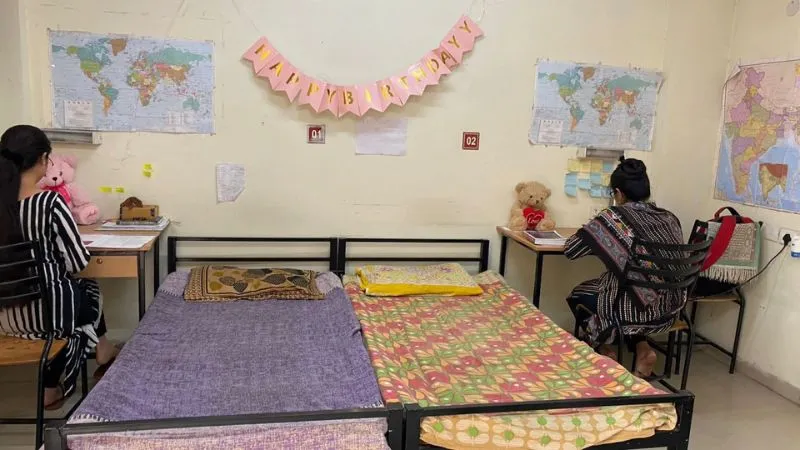On one side, you hear wild laughter of boys echoing in the corridors in the midnight mingling with the clatter of midnight snacks. And then on the other side, there’s a whole new world; much quieter, having a more subdued atmosphere filled with rustling of papers of textbooks.
Welcome to the world of the Indian hostel system. This is a place that transparently reflects the deeply entrenched gender conformity and restrictions based on stereotypes in our society. It’s a place where institutional policies perpetuate gender norms all but in the name of “safety”.
From curfew timings to dress code checks, the institutional rules that are imposed on students in hostels reflect the deeply rooted societal biases. Some of these regulations do appear neutral on the surface, but their enforcement disproportionately affects female residents.
Girls’ hostels enforce early curfews for female students, often citing safety concerns. Undoubtedly, it is a valid consideration given the type of world that we live in. But the harsh strictness carries an implicit message that girls are inherently more vulnerable and need strict supervision, reinforcing the stereotype that women are delicate and in need of protection.
And then comes the double standards of dress codes. It is another area where gender restrictions manifest. It is true that to some extent, both male and female students are expected to adhere to certain guidelines but it is frequently seen that the rules for girls tend to be more stringent. Girls often are not allowed to wear short dresses even during days off college in the campus. I personally have seen a security guard sending my best friend back to her room so she can change her shorts, even though she was just going for an evening walk after classes with me. I have been in an institute before where girls were not even allowed to wear jeans in the college. And on the other hand, males enjoy relatively more freedom and autonomy in their attire. What better way to restrict self-expression, but also perpetuate the idea that a woman’s worth is tied to her modesty and appearance?
The unnecessary stringent regulations by institutional hostels send off a clear subliminal message about the expected roles and behaviours based on gender. This perpetuates a cycle of conformity where students internalise these norms and even replicate them in a wider society.
All of this can take a psychological toll on female students that cannot be overstated. Constant surveillance and foundations on freedom can lead to feelings of resentment, frustration, and even inadequacy among female students. Besides, being subjected to stricter rules and regulations than their male counterparts can reinforce feelings of inferiority and perpetuate the notion that women are inherently less capable of their own autonomy and responsible decision-making for themselves.
We also cannot ignore the hindrance to personal and academic growth caused by these restrictions. There is a limit put up to socialisation and a restricted access to resources as the curfew timings don’t allow female students to even go into the library to study.
There is a need for hostel administrators and policy makers to re-evaluate the existing regulations to ensure that they are equitable and non-discriminatory. Rules in the name of safety should be re-analysed and implemented to serve what they are truly made for and actually aim for. Safety considerations, instead of gender stereotypes, should be the priority. There needs to be more awareness among faculty as well as students on this so as to foster a healthy ambience that promotes equality for all and opportunities for the ones who truly deserve it despite their background and gender.
This article was written by a university student as part of the Youth Ambassador Program. Views expressed are the author's own.
